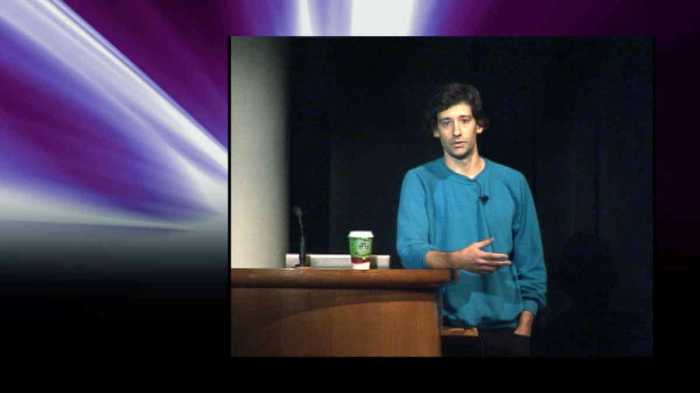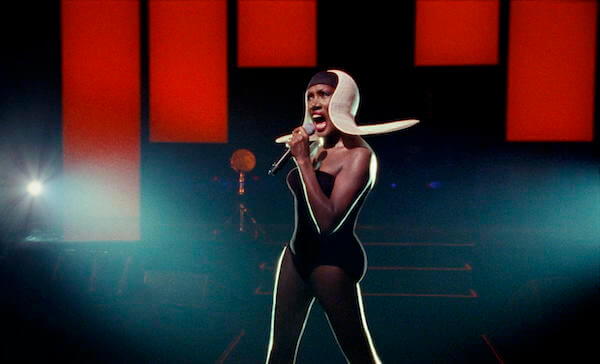Urban legends claim that the dark web is filled with “red rooms” where voyeurs pay to have women slowly tortured and killed according to their instructions. The precisely color-coordinated “Nina Wu” is full of literal red rooms. It also portrays the Taiwanese film industry as a cesspool of sexual abuse, where auditioning actresses are asked to fight each other as an aloof male director watches. Described as a “post-#MeToo thriller,” “Nina Wu” actually falls into a long line of films about the perils of being an actress in a competitive world.
When “Nina Wu” begins, its title character (Wu Ke-xi) is eking out a living as an actress in bit parts and reaching an audience directly on social media. She gets her big break in a period piece set in the ‘60s. As she gets told repeatedly, the part requires sex and nudity. The shoot is unpleasant, but once it’s over Nina seems to finally be on the path to stardom. When she heads back to her hometown in central Taiwan because her mother has suffered a heart attack, she reconnects with her former lover Kiki (Sung Yu-hua), but all the while Nina suffers visions of being stalked by a mysterious woman.
Some of this film’s detractors have criticized it because it’s a movie preoccupied with women’s sexual abuse directed by a man, but the project originated with Wu Ke-xi. She wrote the script in 2018 (although the film gives co-writing credit to Midi Z). Her initial inspiration came from a combination of scandals about the sexual degradation of Korean and Taiwanese actresses and writers and her own experience. She was humiliated on the set of her first major commercial, which led to lingering nightmares and a desire to quit acting. She did so briefly, only returning when she met Midi Z and started performing in a much different kind of role. It’s certainly no accident that the actress and character share the same surname. Wu’s performance shows her character making herself small over and over again, as she’s placed in appalling situations both on- and off-screen.
With all that out of the way, “Nina Wu” repeatedly suggests that Midi Z acknowledges his own complicity in the system he’s describing. (It’s telling that none of the film’s male directors has a name, and that Midi Z’s own end credit comes immediately after Shih Ming-shuai’s for playing “Director”). The film returns again and again to the device of placing Nina in danger, then revealing that we were watching images of her being filmed or a finished film itself. In one such scene, she walks into the middle of the street. After the director yells, “Cut,” she almost gets run over by a passing car. But given that all of this is fictional and being created for a spectator, what does it mean to create so many film-within-the-film moments?
I was enormously impressed by Midi Z’s 2016 “The Road To Mandalay,” which combined politicized neo-realism with a more meditative sensibility. A Burmese immigrant who arrived in Taiwan at 16, the director has made five narrative films and three documentaries, the last being the disappointingly slight and superficial “14 Apples.” His work’s customary grounding in reality gets strained in “Nina Wu.” Wu’s screenwriting may draw from her own experiences, but the director’s style takes it into fantasyland. The lighting is alternately chilly and overheated, while the camerawork luxuriates in slow pans and zooms. Very early on, some images, such as a lizard burning up inside a lamp, are probably Nina’s fantasies, but it’s impossible to tell for sure.
“Nina Wu” creates a world of private symbolism, where characters refer to experiences they couldn’t have witnessed. Midi Z was likely inspired by David Lynch’s “Mulholland Drive,” but the effect is closer to Nicolas Winding Refn’s much crasser “The Neon Demon.” “Nina Wu” tells the story of a lesbian who has to pander to the male gaze to make a living. Its final half gets more and more dreamlike, while also getting nastier.
The fractured narrative here strays out of Midi Z’s comfort zone, and he’s not particularly adept at a less linear style of storytelling. The film is torn between being an exposé of sexual abuse and a weird, arty genre film. It’s possible to do both equally well — look at Daniel Goldhaber and Isa Mazzei’s “Cam,” with which this film has many similarities. But “Nina Wu” ultimately plays as though the exposé is an excuse for another genre entry.
NINA WU | Directed by Midi Z | Film Movement |In Mandarin with English subtitles | Opens Mar. 20 | Metrograph, 7 Ludlow St., btwn. Hester & Canal Sts.; metrograph.com



































